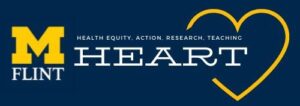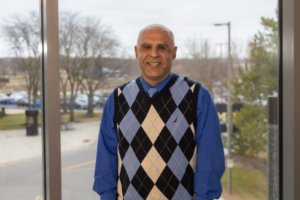Daba Coura Mbow
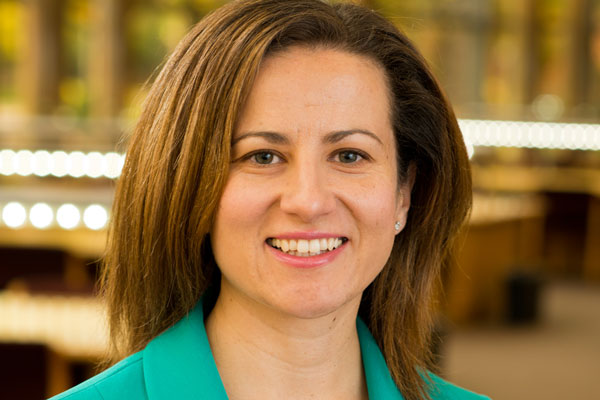
Dr. Gergana Kodjebacheva’s research revolves around parental and child health, with a particular focus on understanding the effects of socioeconomic circumstances. Her journey into this field began during her time as a master’s student at UCLA, where she collaborated with mentors Leo Estrada and Anastasia Loukaitou-Sideris on a project aimed at improving access to public playgrounds for children with disabilities. This hands-on experience involved assessing playground equipment to accommodate children with diverse needs and gathering input from school teachers and parents to make these spaces more inclusive. Dr. Kodjebacheva’s interest in and commitment to child health continued through her doctoral program at UCLA, where she, alongside mentors Anne L. Coleman, Leo Estrada, and Rick Brown, explored the utilization of eyeglasses among children. Their research explored socio-demographic disparities in eyeglass usage, emphasizing that children from lower socio-economic backgrounds were more likely to lack eyeglasses for refractive errors. To address this issue, they crafted an intervention based on feedback from parents, teachers, and school nurses. This initiative included free eye exams, stylish eyeglasses referrals, replacements for lost or broken eyeglasses, parental education on encouraging eyeglass use, and teacher support in the classroom. This initiative successfully increased eyeglass use among students, highlighting the substantial impact of public health research on enhancing well-being.
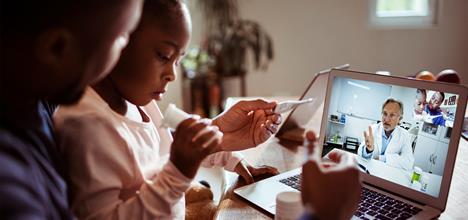
Dr. Kodjebacheva’s dedication to parental and child health continued at the University of Michigan – Flint, where, over the past three years, she has been actively involved in research on pediatric telehealth. Telehealth, characterized by the remote provision of healthcare services and education through video visits, witnessed a surge during the COVID-19 pandemic and is expected to remain an integral part of healthcare delivery. Through surveys and interviews with parents, Dr. Kodjebacheva’s research documented the advantages of pediatric telehealth, including its ability to reduce transportation barriers and enhance patient-centered care during the pandemic. However, it also highlighted significant limitations, particularly socio-economic barriers hindering access to remote care. The challenges of video visits included unreliable internet connections, limited personal interaction during appointments, and concerns about compromised confidentiality. Parents expressed the need for education regarding the health benefits of telehealth for children.
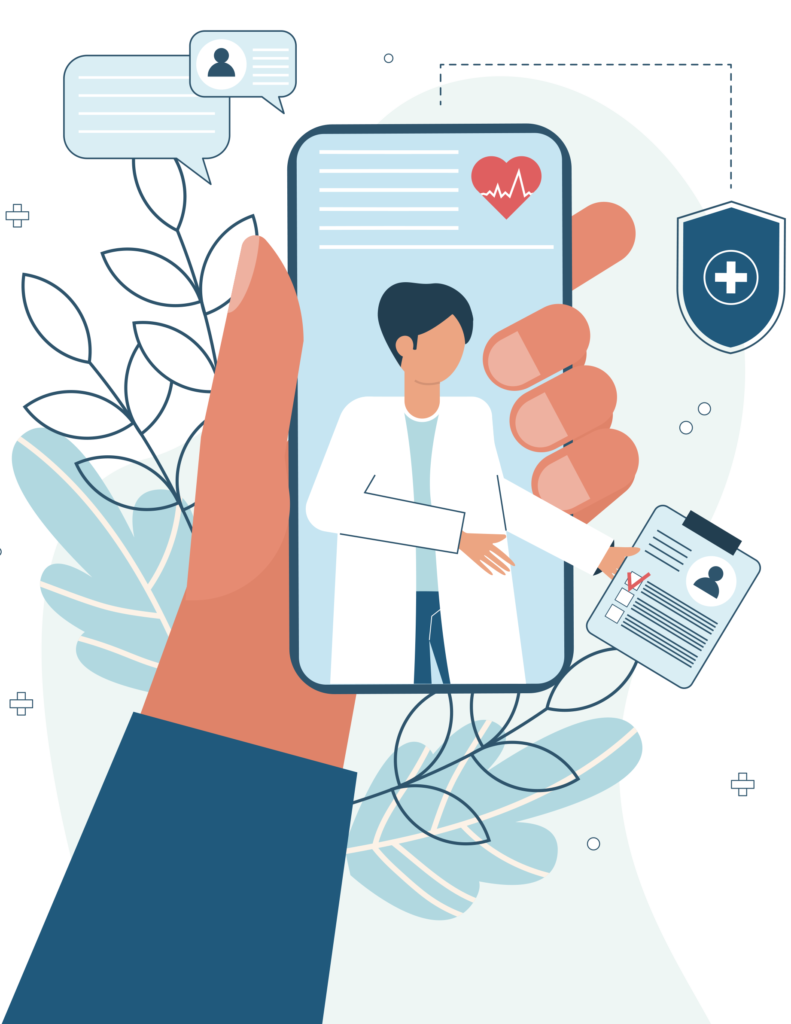
The central outcome of this research is to advance the understanding of delivering telehealth to adolescents, encompassing diverse socio-demographic groups. The research seeks to make video visits more personalized, develop innovative communication technologies, achieve cost savings through preventive and treatment measures via remote care, alleviate parental anxiety related to adolescent care, boost reimbursement for telehealth services, reduce disparities in access to telehealth, enhance health outcomes, and decrease health disparities. In essence, this research strives to reshape and optimize the telehealth landscape, ultimately improving the health and well-being of children and adolescents across various backgrounds. Dr. Kodjebacheva’s research on pediatric telehealth offers valuable insights into the world of remote healthcare. The literature surveyed underscores both the strengths and limitations of telehealth. While some parents appreciate its convenience, telehealth proves particularly beneficial for children with chronic health conditions requiring frequent follow-ups. However, the research highlights the pressing need for improvements to ensure that both parents and patients feel comfortable asking questions and building strong relationships with healthcare providers.
One intriguing aspect emerging from this research is the effort to engage children and adolescents more effectively in the telehealth process. While extensive research has focused on understanding parental perspectives, there is less research on the views of adolescents on telehealth. This revelation stems from recommendations made by parents during surveys and interviews, prompting the development of a study aimed at interviewing adolescents from diverse socio-demographic backgrounds. Their perspectives are seen as pivotal in enhancing telehealth practices.

Despite these promising avenues, the research faces a notable obstacle in recruiting parents and patients, including adolescents, for interviews and ensuring a representative sample. While prior surveys with pediatricians have established valuable relationships that aid in recruitment, challenges persist in achieving comprehensive participation. The most significant question this research endeavors to answer revolves around strategies to enhance the telehealth experience for parents and patients across varying socio-economic strata. Collaborations with pediatrician offices and schools in areas with diverse socio-economic backgrounds are seen as crucial to understanding the barriers to telehealth access among different demographic groups.
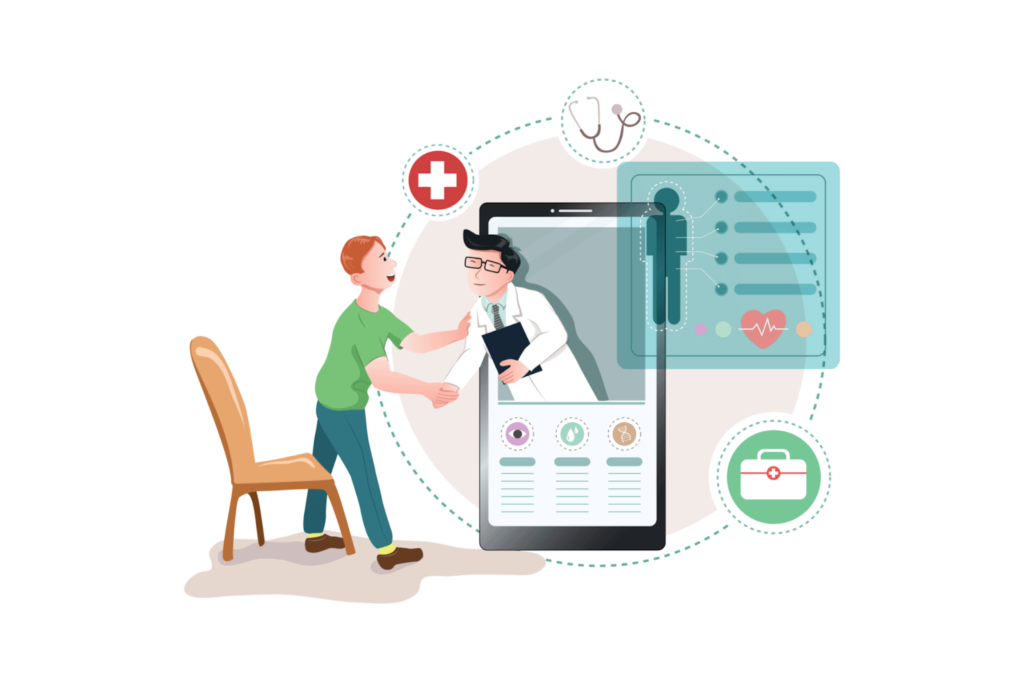
The importance of this research is underscored by its alignment with the “Telemedicine and doctor-patient communication” framework, emphasizing the critical role of effective healthcare communication in remote care. The continuous enhancement of telehealth through the input of parents, patients, and healthcare providers is anticipated to yield numerous benefits, including improved youth health outcomes, enhanced accessibility to healthcare, reduced parental depression, and support for child development. Moreover, future randomized-controlled trials, shaped by the suggestions of parents and patients, hold significant potential in enhancing pediatric satisfaction with telehealth and overall health outcomes. An ongoing collaboration between Dr. Gergana Kodjebacheva and Dr. Charlotte Tang (in computer science) will focus on the design and utilization of technology in healthcare.
COLLABORATION WITH STUDENTS
One of the most rewarding aspects of the research is the inclusion of student researchers. Saman Amin, Taylor Culinski, and Bushra Kawser have all been involved in many aspects of the research. With support from her college and department, and funding from UROP and the Graduate Office GSRA program, Dr. Kodjebacheva has had ongoing support for Saman, Taylor, and Bushra.
Saman Amin: I have been working as a UROP student with Dr. K for the past years. I presented research titled “Associations of remote health care with better or similar health outcomes compared to in-person visits among children and adolescents living with disabilities” at the Mid-Michigan Symposium for Undergraduate Research Experiences organized by Michigan State University in East Lansing, Michigan on July 26th, 2023. In addition to performing research, I volunteer to help girls develop self-efficacy by giving lectures and implementing hands-on activities. As a teacher’s assistant for the third grade, I worked individually with students who were falling behind and helped improve student reading and pronunciation. I am pursuing my bachelor’s degree in health sciences in the Department of Public Health and Health Sciences at the University of Michigan – Flint.
Taylor Culinski: My eyes have been opened to how beneficial, and in some cases, detrimental, telehealth can be in a healthcare setting, particularly for families, mothers, and children. Telehealth has revolutionized medical care, especially during the COVID-19 pandemic, and I believe we will see greater and more effective advancements in the coming years. Throughout my time on the project, interactions with the community have been a vital aspect of my job on the research team. I have gained not only interpersonal skills but a greater understanding of racial and economic disparities regarding health in and around our community.
I have served as a mentor for new student researchers, and it has been so great working alongside peers who have such a strong interest in research and learning. It has also provided me with greater responsibilities in research as I not only have my own research and responsibilities to complete but also guide my mentee through questions and new experiences in the field of research. I am excited to be attending along with Dr. K the annual American Public Health Association meeting in November 2023 where we will give 2 presentations.
As of right now, my future goal is to get my Ph.D. where I want to continue my research. With Dr. K and this study, I’ve learned how to prepare presentations for conferences, interview participants in a study, and analyze and understand the data produced by our research, which are all incredibly important skills for graduate school and beyond.
Bushra Kawser:
Through our collaborations, I was grateful to give an oral presentation at the Great Lakes Chapter of the American College of Health Care Executives (GLACHE) Master’s Student Capstone event on May 19, 2023, where I presented the research along with students from 2 other Michigan universities specifically Ferris State University and Grand Valley State University. My presentation was titled: … The event counted as 1.5 qualifying educational credits for GLACHE members and was free to students. It was attended by over 60 participants of different backgrounds including students and health care managers and executives. It was an amazing opportunity for learning and networking. I am pursuing my MPH with a concentration in health education in the Department of Public Health and Health Sciences at the University of Michigan – Flint and expect to graduate in August 2024. In the future, I would like to pursue my PhD as well.


